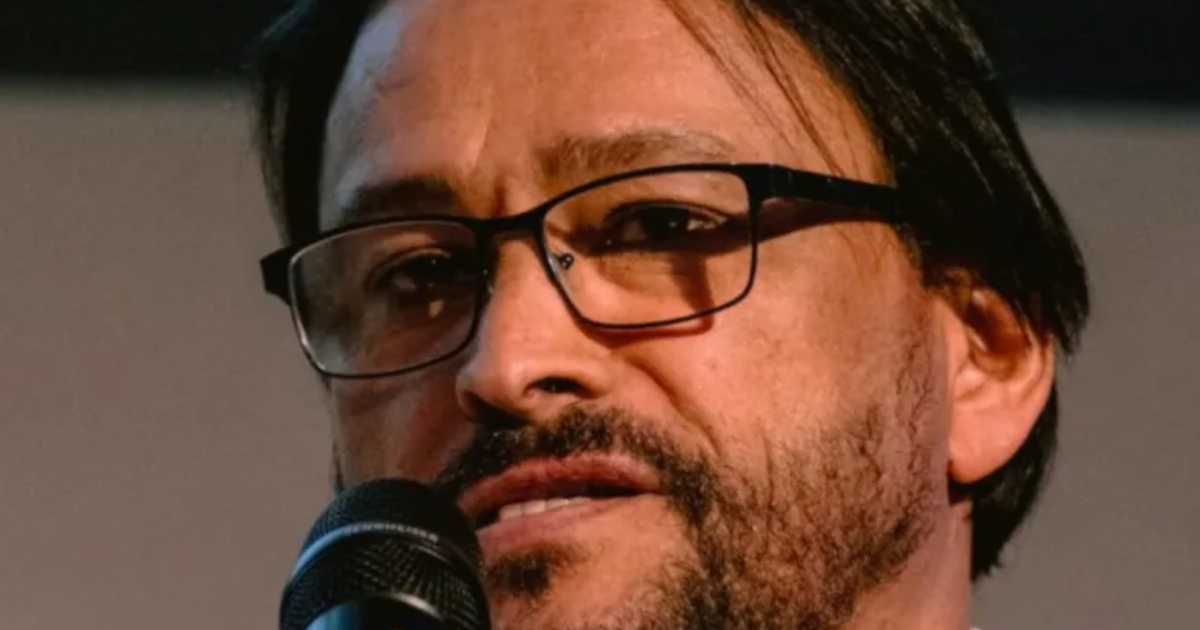
Muhsin Hendricks, well known as the first openly gay Muslim imam, was fatally shot in South Africa last Saturday in what supporters are calling a targeted assassination.
Hendricks was ambushed by two masked men in a pick-up truck while visiting the southern city of Gqeberha. Security video shows one of them jumping out of their vehicle, running up to Hendricks’ car, and firing a pistol multiple times through a side window, the Associated Press reported.
Related
An epidemic of hate is threatening South Africa’s progress toward LGBTQ+ equality
A rise in hate crimes shows the most LGBTQ+-friendly country in Africa is succumbing to influence from surrounding nations.
Police said Hendricks was with a driver, who survived.
Global perspectives delivered right to your inbox
Our newsletter bridges borders to bring you LGBTQ+ news from around the world.
Subscribe to our Newsletter today
South Africa’s Justice Ministry said it was investigating the assassination claims.
A native of South Africa, Hendricks came out in 1996 as the world’s first gay imam. He founded a mosque in Cape Town for gay Muslims and called on faith leaders to welcome the LGBTQ+ community into Islam, where homosexuality is forbidden.
Hendricks was a prolific and popular LGBTQ+ activist. In 2024, he spoke at the International Lesbian, Gay, Bisexual, Trans and Intersex Association’s conference in South Africa. In 2022, he was the subject of a documentary titled The Radical.
Young gay Muslims in the film praised Hendricks for providing somewhere they could pray and practice Islam while still being themselves.
Those efforts at inclusion put Hendricks’ life at risk. He acknowledged the existence of threats against him but said, “It just didn’t bother me. The need to be authentic was greater than the fear to die.”
The ILGA said Hendricks was aware some Muslims were agitating for his mosque’s closure, calling it a “gay temple.”
The organization said it was in “deep shock at the news of the murder of Muhsin Hendricks and calls on authorities to thoroughly investigate what we fear may be a hate crime,” said Julia Ehrt, the group’s executive director. “He supported and mentored so many people in South Africa and around the world in their journey to reconcile with their faith.”
The Democratic Alliance, South Africa’s second-largest political party, said, “The nature of the killing strongly suggests a professional hit.”
In 2022, South Africa’s Muslim Judicial Council issued a series of fatwas — rulings in Islamic law — reminding the country’s Muslims that same-sex relationships were prohibited. Hendricks said it was likely the council had him in mind when they issued the warning.
In a statement on Sunday, the Muslim Judicial Council said that while it had consistently called Hendricks’ teachings incompatible with Islam, “We unequivocally condemn his murder and any acts of violence targeting members of the LGBTQ community or any other community.”
Contrary to initial reports, Hendricks was traveling to perform a wedding for two heterosexual couples, not a lesbian couple.
“He was visiting Gqeberha to officiate the marriages of two interfaith heterosexual couples when he was tragically shot and killed,” Hendrick’s Al-Gurbaah Foundation said in a statement.
Traditional imams rarely, if ever, perform interfaith marriages.
Hendricks had conducted one marriage ceremony and was on his way to the next when he was gunned down in his vehicle, according to the BBC.
The tension between Islam and his queer identity, Hendricks said, was the source of both his faith and activism.
“When I was looking at the way queer Muslims were negotiating this dilemma between Islam and their sexual orientation and identity, I felt compelled to do something about it,” he said. “And I thought, for me to help would probably be for me to be authentic with myself and come out. I think it’s possible to be queer and Muslim or queer and Christian.”
Subscribe to the LGBTQ Nation newsletter and be the first to know about the latest headlines shaping LGBTQ+ communities worldwide.